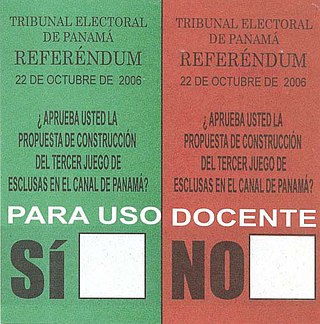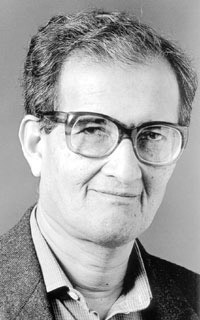Related Research Articles

John Stuart Mill was an English philosopher, political economist, politician and civil servant. One of the most influential thinkers in the history of liberalism, he contributed widely to social theory, political theory, and political economy. Dubbed "the most influential English-speaking philosopher of the nineteenth century" by the Stanford Encyclopedia of Philosophy, he conceived of liberty as justifying the freedom of the individual in opposition to unlimited state and social control.
Rational choice theory refers to a set of guidelines that help understand economic and social behaviour. The theory originated in the eighteenth century and can be traced back to the political economist and philosopher Adam Smith. The theory postulates that an individual will perform a cost–benefit analysis to determine whether an option is right for them. It also suggests that an individual's self-driven rational actions will help better the overall economy. Rational choice theory looks at three concepts: rational actors, self interest and the invisible hand.
In ethical philosophy, utilitarianism is a family of normative ethical theories that prescribe actions that maximize happiness and well-being for the affected individuals. In other words, utilitarian ideas encourage actions that ensure the greatest good for the greatest number. Although different varieties of utilitarianism admit different characterizations, the basic idea behind all of them is, in some sense, to maximize utility, which is often defined in terms of well-being or related concepts. For instance, Jeremy Bentham, the founder of utilitarianism, described utility thus:
That property in any object, whereby it tends to produce benefit, advantage, pleasure, good, or happiness ... [or] to prevent the happening of mischief, pain, evil, or unhappiness to the party whose interest is considered.
In social choice theory, a Condorcet paradox is a situation where majority rule behaves in a way that is self-contradictory. In such a situation, every possible choice is rejected by the electorate in favor of another, because there is always some other outcome that a majority of voters consider to be better.

A Condorcet method is an election method that elects the candidate who wins a majority of the vote in every head-to-head election against each of the other candidates, whenever there is such a candidate. A candidate with this property, the pairwise champion or beats-all winner, is formally called the Condorcet winner. The head-to-head elections need not be done separately; a voter's choice within any given pair can be determined from the ranking.
Arrow's impossibility theorem is a key impossibility theorem in social choice theory, showing that no ranked voting rule can produce a logically coherent ranking of more than two candidates. Specifically, no such rule can satisfy a key criterion of rational choice called independence of irrelevant alternatives: that a choice between and should not depend on the quality of a third, unrelated outcome .

Voting is a method by which a group, such as a meeting or an electorate, convenes together for the purpose of making a collective decision or expressing an opinion usually following discussions, debates or election campaigns. Democracies elect holders of high office by voting. Residents of a jurisdiction represented by an elected official are called "constituents", and the constituents who choose to cast a ballot for their chosen candidate are called "voters." There are different systems for collecting votes, but while many of the systems used in decision-making can also be used as electoral systems, any which cater to proportional representation can only be used in elections.

The categorical imperative is the central philosophical concept in the deontological moral philosophy of Immanuel Kant. Introduced in Kant's 1785 Groundwork of the Metaphysics of Morals, it is a way of evaluating motivations for action. It is best known in its original formulation: "Act only according to that maxim whereby you can at the same time will that it should become a universal law."
Independence of irrelevant alternatives (IIA), also known as binary independence, the independence axiom, is an axiom of decision theory and economics describing a necessary condition for rational behavior. The axiom says that a choice between and should not depend on the quality of a third, unrelated outcome .
In philosophy, economics, and political science, the common good is either what is shared and beneficial for all or most members of a given community, or alternatively, what is achieved by citizenship, collective action, and active participation in the realm of politics and public service. The concept of the common good differs significantly among philosophical doctrines. Early conceptions of the common good were set out by Ancient Greek philosophers, including Aristotle and Plato. One understanding of the common good rooted in Aristotle's philosophy remains in common usage today, referring to what one contemporary scholar calls the "good proper to, and attainable only by, the community, yet individually shared by its members."
The tyranny of the majority is an inherent weakness to majority rule in which the majority of an electorate pursues exclusively its own objectives at the expense of those of the minority factions. This results in oppression of minority groups comparable to that of a tyrant or despot, argued John Stuart Mill in his 1859 book On Liberty.
Majority rule is the principle that a group which has more than half of all voters should be allowed to make the decisions for a group. Majority rule is the binary decision rule most often used in decision-making bodies, including many legislatures of democratic nations. Where no one party wins a majority of the seats in a legislature, the majority of legislators that wields power is partly composed of members of other parties in support.
In an election, a candidate is called a Condorcet, beats-all, or majority-rule winner if a majority of voters would support them in a race against any other candidate. Such a candidate is also called an undefeated or tournament champion. Voting systems where a majority-rule winner will always win the election are said to satisfy the majority-rule principle, also known as the Condorcet criterion. Condorcet voting methods extend majority rule to elections with more than one candidate.
The participation criterion, also called vote or population monotonicity, is a voting system criterion that says that a candidate should never lose an election because they have "too much support." It says that adding voters who support A over B should not cause A to lose the election to B.

The liberal paradox, also Sen paradox or Sen's paradox, is a logical paradox proposed by Amartya Sen which shows that no means of aggregating individual preferences into a single, social choice, can simultaneously fulfill the following, seemingly mild conditions:
- The unrestrictedness condition, or U: every possible ranking of each individual's preferences and all outcomes of every possible voting rule will be considered equally,
- The Pareto condition, or P: if everybody individually likes some choice better at the same time, the society in its voting rule as a whole likes it better as well, and
- Liberalism, or L : all individuals in a society must have at least one possibility of choosing differently, so that the social choice under a given voting rule changes as well. That is, as an individual liberal, anyone can exert their freedom of choice at least in some decision with tangible results.
Noocracy is an ideal type of government where decisions are delegated to those deemed wisest. The idea is classically advanced, among others, by Plato, al-Farabi and Confucius.

Kantian ethics refers to a deontological ethical theory developed by German philosopher Immanuel Kant that is based on the notion that "I ought never to act except in such a way that I could also will that my maxim should become a universal law.” It is also associated with the idea that “[i]t is impossible to think of anything at all in the world, or indeed even beyond it, that could be considered good without limitation except a good will." The theory was developed in the context of Enlightenment rationalism. It states that an action can only be moral if it is motivated by a sense of duty, and its maxim may be rationally willed a universal, objective law.
The Borda count is a family of positional voting rules which gives each candidate, for each ballot, a number of points corresponding to the number of candidates ranked lower. In the original variant, the lowest-ranked candidate gets 0 points, the next-lowest gets 1 point, etc., and the highest-ranked candidate gets n − 1 points, where n is the number of candidates. Once all votes have been counted, the option or candidate with the most points is the winner. The Borda count is intended to elect broadly acceptable options or candidates, rather than those preferred by a majority, and so is often described as a consensus-based voting system rather than a majoritarian one.
Political ethics is the practice of making moral judgments about political action and political agents. It covers two areas: the ethics of process, which covers public officials and their methods, and the ethics of policy, which concerns judgments surrounding policies and laws.
The altruism theory of voting is a model of voter behavior which states that if citizens in a democracy have "social" preferences for the welfare of others, the extremely low probability of a single vote determining an election will be outweighed by the large cumulative benefits society will receive from the voter's preferred policy being enacted, such that it is rational for an “altruistic” citizen, who receives utility from helping others, to vote. Altruistic voting has been compared to purchasing a lottery ticket, in which the probability of winning is extremely low but the payoff is large enough that the expected benefit outweighs the cost.